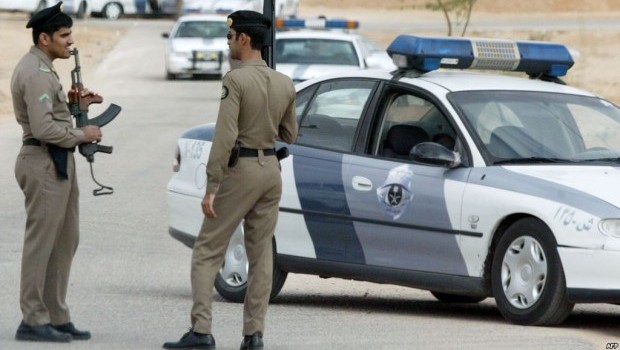Maj. Gen. Mansour Al-Turki said during a press conference that 25 percent of Saudi fighters in Syria had returned, although he admitted that the numbers could not be verified.
He added that it was possible that a number of fighters still in Syria may not be aware of the deadline on the amnesty allowing them to return, and that a number were also wanted in Saudi Arabia on charges of breaching national security.
Saudi Arabia’s monarch, King Abdullah Bin Abdulaziz, issued a decree banning Saudi citizens from travelling abroad to take part in foreign conflicts in early February, on the heels of a new anti-terrorist law and the addition of several organizations, including the Muslim Brotherhood, to the Kingdom’s list of proscribed terrorist organizations.
During the news conference, Turki also said that security forces had succeeded in restoring order to the town of Al-Awamiyah in the Kingdom’s eastern region of Al-Qatif, which was the scene of an armed attack on two German diplomats in January. According to Turki, security forces had targeted “a terrorist gang” in Awamiyah that was attempting to recruit youths under 20 years of age into its ranks.
Turki reiterated that those involved in the Al-Awamiyah incidents were not affiliated to the Saudi Hezbollah group, which was accused of the 1996 bomb attack on the Khobar Towers housing complex which killed more than a dozen US servicemen.
The Awamiyah group was involved in a number of incidents, he said, including the kidnapping and sexual assault of an Asian maid, arson attacks on schools and gun attacks on school teachers, and accused it of trying to lure the security forces into a confrontation with the residents of the town and endanger their lives.
Involvement of outside parties could not be proved but Turki did not dismiss the possibility of incitement through various media sources, including social media.
The Interior Ministry spokesman also announced the arrest of Ahmed Bin Hussein Al-Aradi on February 3, following the uncovering of alleged evidence of his involvement in the attack on the German diplomatic vehicle in January.
Turki said Aradi had confessed to being involved in the attack, which destroyed the vehicle the diplomats were travelling in but left them unharmed, after being interrogated by the authorities. A number of accomplices were identified and several crimes were uncovered, including armed robbery and threatening the safety of school children in Awamiyah. The information also led to the arrest of Hadi Bin Youssef Al-Hazim on March 16, Turki added.
Turki called on a number of other wanted men, including Fadel Bin Hassan Al-Safwani, Salman Bin Ali Al-Faraj and Mohammad Bin Ali Al-Faraj, whose names were on the list of 23 “most wanted” suspects issued two years ago, to surrender. He also called on two other wanted men, Akil Bin Nabil Al-Johar and Salim Bin Abdullah Abu Abdullah, to turn themselves in.


Trackbacks/Pingbacks